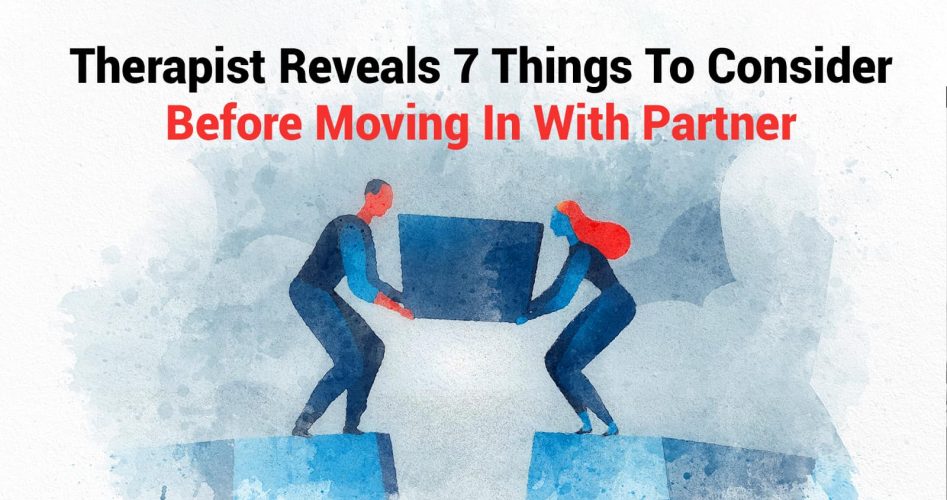Everyone can get stressed out, and it can be challenging to know what to do when your partner winds up in a stressful situation. If they have unhealthy or less-than-ideal coping mechanisms, it can be even tougher to understand how to help them.
Of course, with your heart going out to your partner, you wouldn’t want them to experience this emotional pain. But how can you help them out of that place without further exacerbating the problem?
Here’s how experts recommend six ways to calm a stressed partner.
1. Find The Root
Where is your partner’s stress coming from? Why is it causing them to behave this way? No one ever wants to be stressed, so something is causing this to happen, says author and Professor Emerita of Psychological and Brain Sciences Susan Krauss Whitbourne, Ph.D., ABPP.
Think back to your partner’s day or current life circumstances and consider what may be causing this stress. Here are some questions to help you in the process:
- How has their day been?
- Are their relationships with others, such as family or friends, going well?
- Are they affected by world events?
- Have they talked about anything stressful to you?
- What seems to have triggered their stress?
- Do they have patterns of becoming stressed in certain circumstances?
When you find the root of stress, you’ll be able to respond better to it and help your partner work through it.
2. Listen To Your Partner
Unless your partner says, they genuinely don’t want to talk about the source of their stress, sometimes lending them an ear can help them feel better. Author and licensed clinical social worker Judy Ford outlines some steps to do this:
· Step 1: Recognize Stress Symptoms
Take note of the way your partner begins to behave when stress mounts. Do they exhibit specific behaviors? They might, for example, get fidgety, snap more often, stress eat, or become withdrawn. When you see these symptoms of stress, you can make your approach.
· Step 2: Approach
If your partner is exhibiting their stress symptoms, try to approach them with no judgment. Have compassion, kindness, and positive thinking when you go to them. Then, ask them how they feel and invite them to talk to you about it, maintaining a welcome tone of voice.
· Step 3: Listen
When your partner talks about their stress to you, you need to genuinely and honestly listen to them. This will show your partner that you genuinely care for them. Active listening is a critical skill and can make the difference between a positive and negative response from your partner.
· Step 4: When You Speak, Default To Comfort First
Most people who talk about their emotions will want to be comforted, not provided with solutions right away. First, offer comfort and give them physical or emotional support. Only after that should you ask if they’d like to find a way through the stressful situation with your help.
3. Be Supportive, Always
When a partner opens up to you, you need to make sure they feel validated. They are vulnerable to you, so it’s only natural that you do your best to accommodate their emotions and show them how you appreciate their openness. Here are some tips for being supportive:
· Being Patient
Your partner doesn’t want to be stressed out, and they certainly don’t want that stress to affect you. If they come to you and speak in a positive and productive way about something that involves you, resist the urge to default to defensiveness. Be patient and listen instead, so keep calm, recommends Whitbourne.
· Ask How You Can Help
It’s essential to ask your partner how you can support them, says Ford. Even if you can’t directly help, ask how you can make things go more smoothly for them or how you could help them feel better. You can offer to do some extra chores, help them run an errand, give them a massage, cook them dinner. The possibilities go on and on!
· Give Them Space If They Need It
Some people need to be alone when they’re stressed out. Don’t take it personally – it’s not about you at all; it’s about someone’s healthy need for me-time. Give your partner the personal space to do their own thing and unwind without your input, suggests Psychotherapist Edie Stark, MSc, LCSW. You’ll be surprised how supportive of action this can be to them and how much it may boost their positive thinking! Just make sure you talk about their needs for space and alone time first.
4. Understand Insecurity Scientifically
Before you can even begin to calm down a stressed partner, you need to understand insecurity as a scientific concept. This doesn’t refer to typical “insecurity” in the commonly portrayed, obvious sense, but more to insecure attachment and insecure defensiveness. Many times, stress is the result of something partially influenced by insecurity. If you’re not careful, you can trigger an escalation of the situation by not knowing how to manage that insecurity.
According to research, a partner’s stress can spiral out of control when they protect themselves from mental distress. This can trigger immature insecure mechanisms that are important to respond to in a positive way to prevent a worsening situation. A person who is using these mechanisms may:
- Very heavily fear abandonment.
- Become defensive or passive-aggressive
- Respress their feelings
- Desire reassurance but feel invalidated by your current response.
- Experience reality distortion
- Feel too overwhelmed to react positively
Partners who experience severe insecurity may benefit from therapy or counseling services, and it’s worth broaching the subject with them if these harmful attachment patterns are becoming extremely prevalent in your relationship. If they happen too often, it can be toxic and cause the relationship to end.
5. Try Working Through It Together
As a couple, you are meant to work through hurdles and problems hand-in-hand. You are meant to be there for each other through thick and thin. Coping with issues as a couple is referred to as dyadic coping, and it has substantial positive effects on the health and strength of a relationship.
This is why Assistant Professor of Communication, writer, researcher, and family relationship expert Elizabeth Dorrance Hall, Ph.D. recommends handling stress in the following ways:
· Learn To Turn To Each Other
When you experience stress, learn to trust your partner and go to them first. Could you encourage them to do likewise? Over time, you will both get better at responding to each other’s stress and will learn to trust each other with the details of your plight naturally. Of course, be aware of emotional bandwidth, too. Communicate clearly about your emotional boundaries when turning to each other!
· Ask Questions
Don’t be afraid to clarify your partner’s position. If there’s something you don’t understand, ask them about their perspective. Make sure you’re being non-judgmental and be clear that you’re asking because you want to understand them, not because you disbelieve them.
· Brainstorm With Each Other
When your partner experiences stress, learn to put your heads together. Discuss options, allowing your partner to lead the discussion, and help them organize their thoughts so they can make their own independent judgments, decisions, and conclusions. Your goal is not to push your thoughts onto them, but to help your partner process their feelings and ideas.
· Offer Your Perspective
Once you’re in brainstorming mode together, offer your perspective of the situation. You may have a less dramatic viewpoint because you’re separated from the emotions your partner is experiencing, or you might have some additional insight or unique opinion. Don’t push your partner to incorporate your perspective – show them alternative options they may not have considered.
· Support Their Strengths
Appreciate your partner’s strengths and your strengths. See how you can cover for each other and complement each other to find the best solutions!
6. Learn From This
The point of life is to keep improving based on life experiences. As a couple, you can both learn and grow from moments of stress and become stronger for it. If you don’t learn from the event, you and your partner may end up stuck in a cycle of stress that you never learn to handle better. Here are some ways to make sure you and your partner have learned from this episode of stress:
· Think Of How To Better Handle This In The Future
What can you learn from this episode of stress? How can you prepare for this in the event it happens again? What triggers do you both need to be aware of? What have you learned works best for both of you, and what doesn’t work at all? When you think of these questions, you’ll be learning and growing together from experience and will be better equipped to face it next time with more positive thinking.
· Explain Your Point Of View
If your partner’s stress led to them lashing out at you or exhibiting toxic behaviors, you need to tell them about it. After you’ve worked through the worst of the stress, open up communication regarding this with them, suggests Whitbourne. You want to talk about how their defense mechanisms hurt you or made you feel and recommend more mature or positive methods of coping for the future. Remember, don’t be accusatory – focus on explaining yourself productively and with kindness.
· Understand Your Own Thresholds And Boundaries
Your partner’s pain can, in turn, affect your emotional energy. If you let yourself be drained instead of stepping away when you need to, you’re doing no one any favors. Ford recommends learning to gauge your stress levels, so you know when you need a break and need your support. Be sure to speak to your partner about this. Remember, it’s unreasonable for any expectations to involve a partner being there for the other at their own severe mental detriment. You can’t help each other if you start suffering, too.
Final Thoughts On Some Ways To Calm A Stressed Partner
Stress is a part of life. Your partner will end up feeling stressed out multiple times throughout their life, as will you. Learn to help your partner through their stressful times and learn to rely on them during your own. This will ultimately build your bond and make your relationship stronger!












